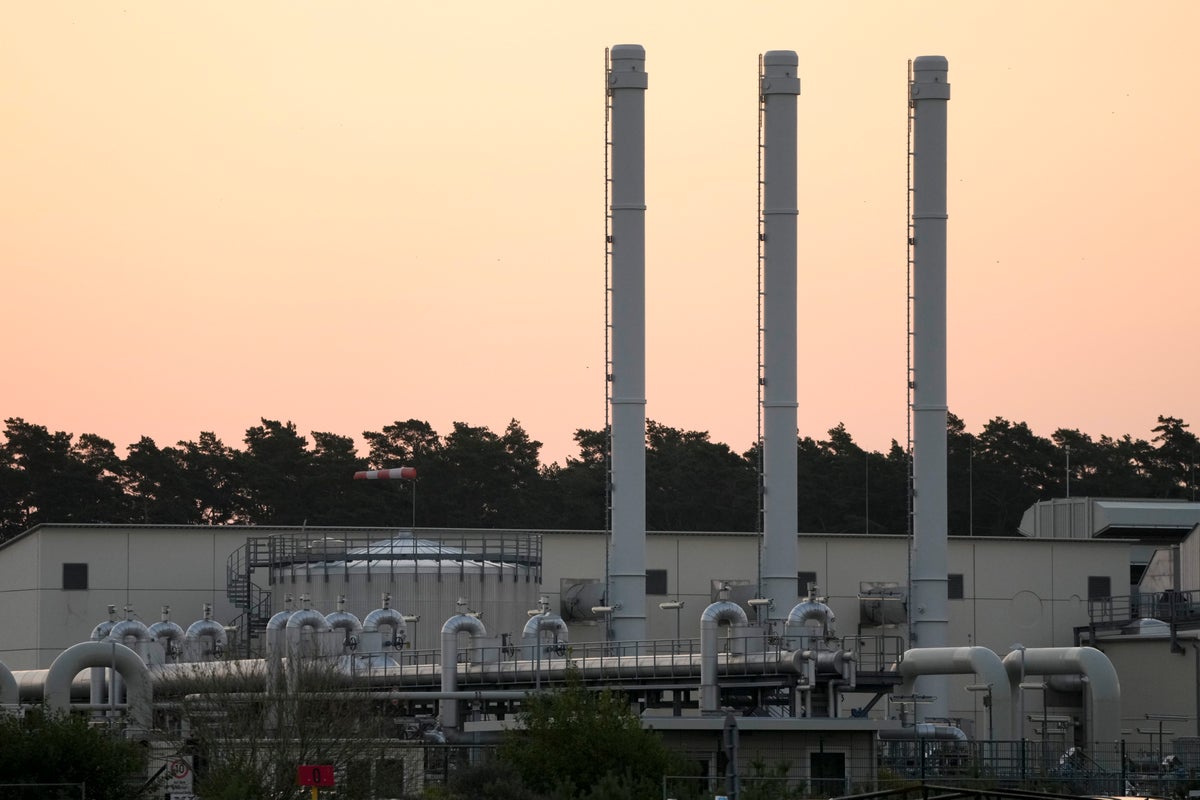
Energy bills are set to triple as British households face an “almighty hit” to living standards, economists have warned.
Vulnerable households could face an average bill of £500 for energy in January 2023, with a prediction of an annual price cap of £3,850, far exceeding already gloomy predictions for rising bills made earlier this year.
The forecast, by utilities consultancy BFY Group, came as Russia took further steps to slash its gas supplies to Europe, strangling the market even further.
The country has drastically reduced gas supplies to several European states since waging war on Ukraine. The bitter conflict has upped pressure on global food, petrol and domestic energy costs.
“If you look back at the same time last year, your bill is likely to be three times what you would have been paying in January,” Gemma Berwick, a senior consultant at BFY, told The Independent.
The projections have added to economists’ concerns about the depth and length of the cost of living crisis.
In the next two years, inflation will eat into living standards at a rate not seen since at least the 1950s, said Paul Dales, chief UK economist at Capital Economics.
“There’s an almighty hit for households’ spending power coming down the line,” he said.
Disposable income, a measure which works out the amount of money households have left after paying for essentials, will drop by 3 per cent this year, and by 2 per cent next year, according to Mr Dales.
“This hasn’t fallen by more than 2 per cent in a calendar year since 1955,” he said.
The stark findings come as Citizens Advice said it is facing record levels of requests for help from people unable to top up their prepayment meters.
“Our data paints a picture of the stark choices facing families everywhere as the cost of living crisis bites,” said Dame Clare Moriarty, chief executive of the charity.
“Most worrying is that issues we’d typically see in winter – like people unable to top up their prepayment meter – are peaking in the height of summer.”
BFY’s projections are “awful news for everyone” Ms Berwick said, but those on prepayment meters will be most exposed. This group, who tend to be on lower incomes, will have to find the cash right away, rather than smooth the impact of winter bills through a year’s worth of direct debits.
“Prepayment customers will be looking to top up their meters with £500 in January,” she said.
Energy regulator Ofgem’s price cap will have to take these recent higher prices into account when it sets a new figure in August. Its so-called observation window for monitoring energy markets ran from February and will end on 18 August, before the new cap is announced a few days later.
“This means most of the data has already been collected,” Ms Berwick said.
Cornwall Insight, another consultancy, forecast a price cap of £3,364 for January 2023 earlier this month, but Russia’s increasingly militant approach to gas exports has worsened the outlook, market experts said.
BFY now believes Ofgem will have to set the earlier October price cap change at £3,420, with another increase expected when the cap is reviewed in January to £3,850.
The findings will add to pressure for more government intervention in the months ahead.
Policy experts at charities, including Citizens Advice, have called on the government to uprate benefits in October based on September’s snapshot of price growth, rather than leave the most vulnerable facing a delay of six months by taking data from April this year.
“It’s clear our charts are only going in the wrong direction,” said Dame Clare.
“The government did the right thing by bringing in support through the benefits system to help people struggling the most. It must now be ready to act again before winter sets in,” she added.
Economists are particularly concerned about the impact on those households with little or no slack in their monthly spending.
“The most worrying thing for me is that those people set to suffer most are already at the lower end of the income spectrum,” Mr Dales said.
This means lower consumers are likely to cut back on everything they can to get by, such as insurance policies or pension contributions, with serious long-term consequences for the wider economy, he said.
“You dial back on the future and pay for the now,” he added.
The cost of living crunch is set to play a central role in the ongoing Conservative leadership contest. The two contenders, Liz Truss and Rishi Sunak, have clashed over how to best support households.
Mr Sunak performed a U-turn on Tuesday by pledging a temporary cut to VAT on domestic fuel bills, having previously criticised Ms Truss’s tax slashing plans.
But if the VAT cut were to become permanent it could be “a move in exactly the wrong direction” by encouraging households to use more energy, according to Stuart Adam, senior economist at the Institute for Fiscal Studies, an economic think tank.







